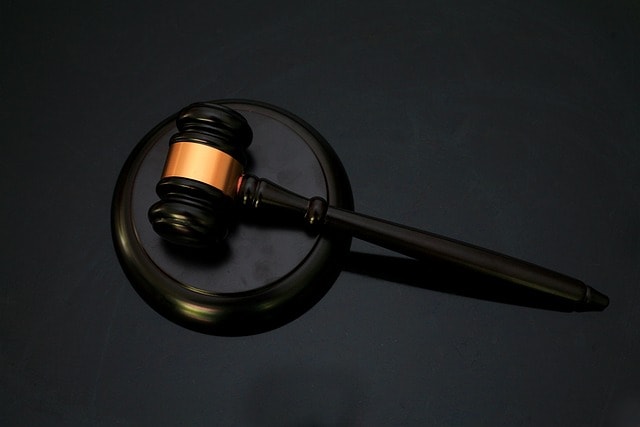Navigating a police interview can be a daunting and anxiety-inducing experience, especially when you are unsure of your legal rights. It’s vital to understand that during these high-stress interactions, every word and decision can significantly impact the outcome of your case. At Levitt Legal, our expertise lies in providing robust legal representation to ensure your rights are defended throughout the interview process.
We specialize in guiding our clients through these complex situations with detailed advice on responding to police questions, what information you must disclose, and what you can lawfully withhold. We aim to ensure that you are prepared and protected, offering comprehensive support that can make a critical difference in safeguarding your legal interests.
Key Takeaways
- Vital Role of Legal Advisors: Legal advisors from Levitt Legal actively protect your rights during police interviews by offering tailored guidance, preventing self-incrimination, and intervening when necessary to challenge improper questioning or evidence handling.
- Miranda Rights Awareness: Fully understanding and exercising your Miranda rights, including the right to remain silent and the right to an attorney, is fundamental to maintaining your legal protections.
- Statistical Support for Legal Representation: Data shows that individuals with legal representation during police interrogations are significantly less likely to make incriminating statements, which could lead to reduced sentencing or case dismissal.

The Role of a Legal Advisor During Police Interviews
When you’re facing a police interview, the presence of a skilled legal advisor can be a game-changer. A criminal defense attorney is not just there to sit beside you; they play an active role in ensuring your rights are protected and that you make informed decisions. From the moment you invoke your right to have an attorney present, your legal advisor becomes your advocate, guiding you through the complex legal process and helping you navigate the intricacies of criminal law.
The primary role of a criminal defense lawyer during police interrogations is to help you understand your legal rights and options. This understanding is crucial, as it empowers you to make decisions that are in your best interest. A defense attorney can analyze your case, challenge the evidence presented by law enforcement officers, and highlight any procedural mistakes made during the police investigation. This expertise can prevent incriminating statements that could be misconstrued or used against you in court.
Moreover, a lawyer ensures that your rights are respected and protected during the police officer interview. Legal advisors are adept at spotting and addressing any violations of your legal rights by law enforcement. They can also negotiate on your behalf, ensuring that any cooperation with the police is legally sound and in your favor.
A criminal attorney safeguards your interests, ensuring you do not fall victim to coercion or intimidation during the police interrogation. Hiring the best criminal defense attorney can provide you with the necessary support in these situations.
Understanding Your Miranda Rights
Miranda rights are a fundamental safeguard designed to protect individuals from self-incrimination during police interrogations. Originating from the landmark U.S. The Supreme Court case is Miranda v. It addresses issues related to legal rights and police interrogation. Arizona, these rights are crucial in ensuring suspects know their legal protections under the Fifth Amendment. When law enforcement officers take you into custody, they must inform you of your right to remain silent, your right to an attorney, and that anything you say can be used against you in court.
The right to remain silent is a critical aspect of Miranda rights. Exercising this right can prevent you from making statements that could be incriminating or misinterpreted by the police. It’s important to understand that you are not obligated to answer any police questions without an attorney present. This protection is especially vital for children, who must be informed of their constitutional rights, including the right to have legal representation, before any interrogation takes place.
The right to an attorney is another key component of Miranda rights. Without legal representation, there’s a significant risk of unintentionally waiving your rights, leading to self-incrimination during police interviews. It’s crucial to explicitly state that you want an attorney and refrain from answering any questions until your criminal defense lawyer is present. This ensures you have the guidance to navigate the police interview process without compromising your legal position.
Key Sections of the Utah Code on Legal Protections
The Utah Code provides several key sections that enhance understanding and enforcement of legal protections during police questioning. One of the most important sections is Utah Code Section 77-23-2, which deals with the right of a suspect under arrest to consult with legal counsel. This section underscores the necessity of informing suspects of their right to an attorney and ensuring they have the opportunity to exercise this right.
Additionally, the Utah Code mandates that Miranda rights must be read to suspects before any questioning begins. Failure to do so can suppress any confessions or statements made during the police interview.
These legal protections ensure that suspects receive fair treatment and that their constitutional rights are upheld throughout the police investigation process.
How Legal Advisors Ensure Your Rights Are Respected
Legal advisors are essential in ensuring suspects’ rights are respected during police interviews. When you request an attorney, your criminal defense lawyer becomes your advocate, guiding you through the legal process and providing crucial advice on self-incrimination. An attorney helps interpret legal terms, ensuring you fully understand the implications of any statements you make during the police interview.
One key protection provided by legal advisors is the ability to communicate privately with their clients. This ensures that law enforcement officers cannot listen to these conversations, safeguarding your legal rights and allowing for open, honest communication with your defense attorney. A strong advocate like Darren Levitt focuses on thorough case assessments and strategic defense building to achieve the best outcomes for clients.
Furthermore, legal advisors can negotiate on your behalf, securing legally binding terms for any cooperation with law enforcement. This ensures that your rights are protected and that you do not unintentionally incriminate yourself during the police interrogation process. By having a knowledgeable legal advisor by your side, you can navigate the complexities of the criminal justice system with confidence and peace of mind.

Practical Tips for Engaging with Police
Engaging with police can be a daunting experience, but knowing how to handle the situation can make a significant difference. When approached by law enforcement officers, it is essential to remain calm and cooperative. You must only provide your name and address; you can remain silent and request an attorney. Keeping your hands visible and following the officer’s instructions can help de-escalate the situation.
A safe approach during police questioning is to politely decline to answer questions and immediately request to contact a criminal defense attorney. Having a criminal defense lawyer by your side ensures that you do not unintentionally incriminate yourself and that your legal rights are upheld throughout the police interview. Before giving any statement to police officers, it is crucial to consult with your attorney to understand the potential consequences of your words.
Additionally, you have the right to refuse consent to search your person or belongings. This refusal can protect your legal interests and prevent law enforcement from gathering evidence without proper authorization.
Specific advice for engaging with police includes identifying oneself, requesting an attorney, and not consenting to searches or answering questions without legal representation.
The Importance of Remaining Silent
Remaining silent during police interrogations is a fundamental right protected by the Fifth Amendment. This right shields individuals from self-incrimination and ensures that they do not make statements that could be used against them in court. It is essential to understand that you are not legally obliged to answer any questions from the police when accused of a crime. Exercising your right to remain silent can prevent unwanted consequences, regardless of the severity of the crime.
Law enforcement officers may try to pressure you into speaking by falsely claiming that remaining silent amounts to obstruction of justice. However, it is important to remember that an arrest does not imply guilt; it is the prosecution’s job to prove guilt beyond a reasonable doubt.
By staying silent and requesting an attorney, you protect your legal rights and ensure that you do not unintentionally incriminate yourself during the police interview.
Local Statistics on Police Interviews Without Legal Counsel
Local statistics on police interviews without legal counsel reveal significant differences in arrest outcomes for individuals who engage in police interviews without legal representation. Understanding these statistics is crucial for recognizing the potential risks and outcomes for suspects who lack legal counsel during police interrogations.
For instance, data indicates that suspects who do not have a lawyer present during police interviews are more likely to make incriminating statements and face harsher consequences than those with legal representation. These findings underscore the importance of invoking your right to an attorney and ensuring that you have legal counsel by your side during any interaction with law enforcement.
Regional Concerns: Urban vs. Rural Police Practices in Utah
Police practices in urban and rural areas of Utah can differ significantly due to variations in resources, population density, and community dynamics. Urban policing often faces challenges related to the density and diversity of populations, leading to the adoption of community policing initiatives to enhance crime prevention and build trust with residents. In Salt Lake City, for example, these initiatives aim to improve public safety and foster better relationships between law enforcement and the community.
In contrast, rural law enforcement in Utah typically operates with fewer resources and personnel than its urban counterparts. This can result in different approaches to policing and crime prevention.
Despite these differences, the fundamental legal protections and rights afforded to suspects remain the same, regardless of whether they are in an urban or rural setting. However, the number of police officers terminated in Utah is significantly low, indicating challenges in accountability across the state.
Why You Shouldn’t Sign Documents Without a Lawyer
Signing documents without a lawyer’s guidance can have serious legal implications, especially during police interrogations. Even if you are not in custody, you must exercise your right to remain silent and refrain from signing any documents without consulting your attorney. This precaution protects you from self-incrimination and ensures that you fully understand the legal consequences of any document you might be asked to sign.
Legal representation is essential because a criminal lawyer can provide the necessary guidance to navigate the complexities of the legal process. Your defense lawyers will review any documents and advise you on the best course of action, ensuring that your legal rights are protected.
A lawyer’s presence helps you avoid decisions that might negatively impact your case, safeguarding your interests during the police interview.

Contacting Levitt Legal for Legal Representation
Engaging with skilled legal representation from Levitt Legal early in the process can be crucial in securing a favorable outcome. Darren Levitt’s expertise in handling complex criminal cases ensures that your rights are prioritized and your case is handled with the strategic foresight needed to challenge prosecutorial efforts effectively.
If you or someone you know is facing a police interview or criminal charges, don’t hesitate to contact Levitt Legal. Our dedicated team is ready to protect your legal rights and provide the comprehensive legal representation necessary to navigate these challenging circumstances.
Frequently Asked Questions
How to tell if you’re being set up by police?
If you notice unsolicited offers or suggestions, feel pressured or coerced, or experience sudden and unusual attention from law enforcement, you may be getting set up by police. Additionally, be wary of offers of protection in exchange for illegal activity or any signs of evidence being planted.
What are Miranda rights?
Miranda rights are essentially legal protections that inform suspects of their right to remain silent and their right to an attorney during police interrogations, safeguarding them against self-incrimination. Understanding these rights is crucial for anyone facing legal circumstances.
Why is it important to have a legal advisor during police interviews?
Having a legal advisor during police interviews is crucial as they protect your rights, prevent self-incrimination, and ensure the legality of your statements. Their expertise also enables them to challenge any evidence or procedural errors law enforcement commits.
What should I do if a police officer wants to question me?
If a police officer wants to question you, calmly provide your name and address but politely decline to answer further questions without a criminal defense attorney present. Remember, you have the right to remain silent and to request legal representation.
Can I refuse to sign documents during a police interview?
Yes, you can refuse to sign documents during a police interview, and it is advisable to consult your attorney first to understand the legal implications. Protecting yourself from self-incrimination should be your priority.
